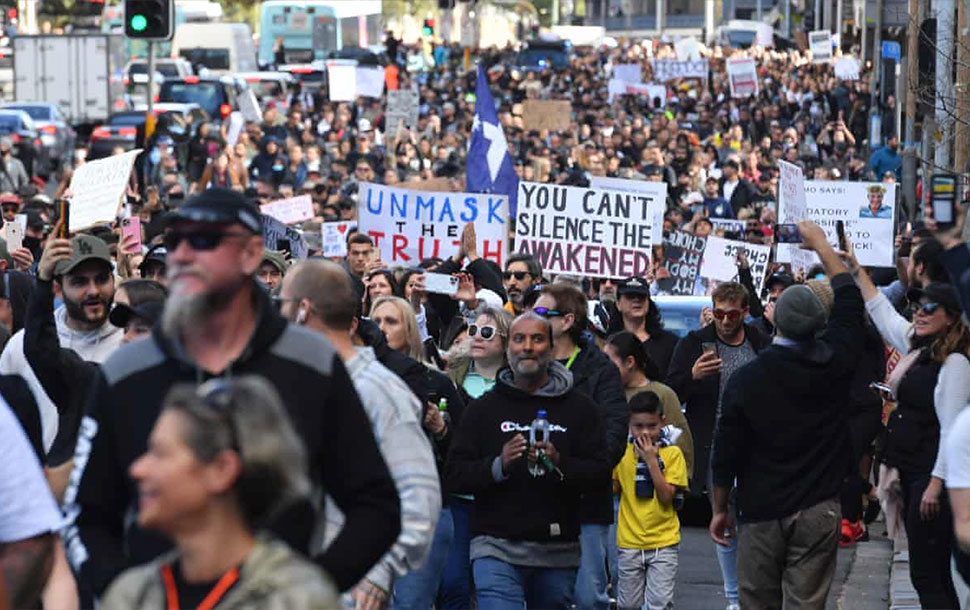The public health measures put in place in Australia in response to COVID-19 have prompted a range of responses from Christians. In discussions about how to respond the ideas of ‘conscience’ and ‘freedom (or liberty) of conscience’ often come up. In this four-part series, the GiST team takes a fresh look at conscience and liberty of conscience, and asks the question, “Are they Christian ideas?’
In this, the fourth part of this series, we ask the question…
What dangers might we need to be aware of?
Since there are differences between the biblical and modern political ideas of conscience and liberty of conscience, what potential dangers might there be for Christians seeking to apply these ideas in their lives?
One danger (and temptation) is for Christians to use these ideas as a ‘shield’ for preventing others from questioning or persuading them about their views or choices. The modern idea of conscience is that it is a ‘commander’, dictating to us what we must or must not do. It is therefore seen as unquestionable, by the individual or others. However the Christian idea of conscience is that conscience must be open to question, persuasion, and learning or it (effectively) becomes a ‘god’. As Christians we cannot invoke ‘liberty of conscience’ to shut down discussion about beliefs we have or choices we have made. This is especially important since even views grounded in biblical principles can also be influenced by improper motives or thinking (e.g. self-righteousness, or the desire to be independent of all authority; also unthinking compliance or exaggerated fear). Christians must be free from coercion from our fellow Christians, but Christians are not free from our fellow Christians persuading us and/or teaching us so that our views better align with God’s Word.[1]
A second danger for Christians is to endow views on issues of wisdom with the status of views held on the ground of conscience. There are many decisions Christians are called upon to make which fall under the heading of ‘wisdom’, in relation to which God does not require the choice of one particular option over another. For example, should your children attend Christian schools? Which political party should you vote for? Christians hold strong (and varying) opinions about such things. Yet they are not matters about which Christians are required by God to choose one particular option or another.[2] They are not matters of conscience, since conscience bears witness to what the individual understands God’s requirements to be. When Christians see matters of wisdom as matters of conscience they will tend to see others who make different choices as sinful in making those choices. They risk therefore becoming modern-day Pharisees, ‘teaching as doctrines the commandments of men’ (Mark 7:7).
A third (and related) danger is for Christians to ‘sanctify’ the expression (and manner of expression) of their views on wisdom issues, as if they were conscience issues. Martin Luther rightly expressed his conscience view at the Diet of Worms: “I cannot and will not recant anything, for to go against conscience is neither right nor safe. Here I stand, I can do no other.” Yet Luther was speaking on issues to which God’s word speaks directly and profoundly; he was not speaking on issues God has left to human wisdom. The kingdom of God is not a matter of wisdom issues (c.f. Rom.14:17). Christians are not free to express their views on wisdom matters in ways which are destructive to the faith of their fellow Christians nor to the peace and unity of the church (c.f. Rom.14:20,15:2).[3]
Conclusion
Conscience is a wonderful gift from God given to each person on this earth. It is a ‘witness bearer’ – a kind of alarm that is tripped when we are about to transgress (or have transgressed) one or more of God’s good boundaries. To value it and cultivate it is part of growing in godliness.
Liberty of conscience too is a wonderful biblical idea, intended in the first instance to help Christians maintain fellowship with one another even when they disagree over what God requires. Granting liberty of conscience to one another allows time and space for God to work in the lives of our fellow Christians when some of the requirements and freedoms of his word have not yet trickled down to people’s understanding or conscience.
This is the same time and space that the Lord Jesus extends to each one of us his people, who often get things wrong in both our understanding and practice of following Him. Praise God, the merits of Jesus’ life, death, and resurrection cover our missteps and slowness to grow. Where would any of us be if Christ did not extend this freedom to us?
Through the influence of Christianity over the centuries these ideas ‘overflowed’ to societies in which Christianity was strong. However they did not do so without undergoing some changes. It is hoped that this series of articles has helped those who read them to grow in their discerning use of these important concepts.
[1] Nothing in this paragraph of course rule outs the use of the ‘keys of the kingdom’ within the church (Matthew 16:19), which have commonly been taken to mean exclusion from the Lord’s Supper and then (later) exclusion from the church itself (c.f. Matthew 18:15-20, 1 Corinthians 5:11). Christians must be allowed to believe and act in accordance with a weak conscience, but ongoing stubborn placement of oneself outside the bounds of orthodox Christianity, in belief and action, has consequences for our membership of, and participation in, the church.
[2] Of course there would be some options in these areas which a Christian would be required by God not to choose e.g. voting for the National Socialist (i.e. Nazi) party!
[3] Westminster Confession of Faith 20.4 also speaks pointedly to this issue, reminding Christians that they are under the authority of church government (i.e. Sessions, Presbyteries, etc.) in relation to their expression of such opinions.

